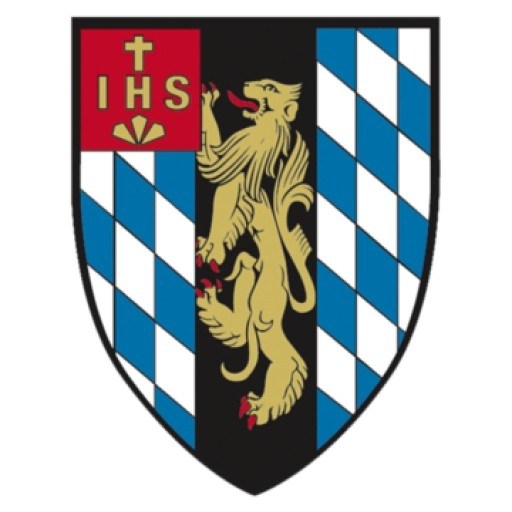Photos of university / #oxford_uni
The course in Religion and Oriental Studies enables you to learn in depth about a number of the world’s great religious traditions, including Christianity, Buddhism, Hinduism, Islam and Judaism. To engage with all the different aspects of the course, you have to be something of a historian and a philosopher, a textual and literary critic, and a linguist. These disciplines together, not only enable students to appreciate the qualities of religions that can be radically different from those in Western societies, but also equip graduates to embark on a wide range of careers.
This degree offers the opportunity to study the major world religions and their primary languages. Students can also explore the relationship between religions and science, and the place of religious ethics in public life. Religion and Oriental Studies provides an understanding of the intellectual underpinning of religious traditions, and of the social and cultural contexts for religious belief and practice.
The Theology and Religion and Oriental Studies Faculties have between them more than 270 members, ranging from experts in the ancient languages and literature of the world’s religions to church historians and systematic theologians. Their reputations, together with excellent library facilities, attract scholars from all over the world.
RELOS Careers
Oxford graduates in Religion and Oriental Studies can expect to go on to careers as diverse as law, social work, the media, journalism, publishing, banking, management consultancy, accountancy, personnel management, teaching, the police force and the arts. Employers look very favourably on applicants who have learned oriental languages, and Oxford graduates with such skills are among the most successful each year in finding employment.
Work is divided between tutorials (at least one a week), lectures (up to six a week) and language classes (at least three a week in the first year). A large part of your week will be spent in private study to prepare for tutorials.
| Terms 1–3 | |
|
Courses
|
Assessment First University examinations: |
| Terms 4–9 | |
|
Courses Students take seven papers, three in Oriental Studies and three in Religion; the seventh may be chosen from either Oriental Studies or Religion. In addition, all students must prepare a 12,000-word thesis on a topic of their choice, which may be chosen from either Oriental Studies or Religion. The options listed above are illustrative and may change. More information about current options is available on the Religion and Oriental Studies website. |
Assessment Final University examinations: |
- Attestat o Srednam Obrazovanii (Certificate of Secondary Education) would not be sufficient for candidates to make a competitive application. If your qualification is listed as being insufficient to make a competitive application to Oxford, then you will need to undertake further study if you wish to apply.You could take British A-levels (the British Council may know where you can take A-levels in your country), the International Baccalaureate (IB), or any other qualifications listed as acceptable on this page. The first year of a bachelor's degree from another university could also be an acceptable alternative.
- IELTS: overall score of 7.0 (with at least 7.0 in each of the four components)
- TOEFL (paper-based): overall score of 600 with a Test of Written English score of 5.5
- TOEFL (internet-based): overall score of 110 with component scores of at least: Listening 22, Reading 24, Speaking 25, and Writing 24.
- Cambridge English: Advanced, also known as the Certificate of Advanced English (CAE): grade A if taken before January 2015, or a score of at least 185.
- Cambridge English: Proficiency, also known as the Certificate of Proficiency in English (CPE): grade B if taken before January 2015, or a score of at least 185.
- English Language GCSE, or O-level: grade B (for IGCSE, please see below)
- International Baccalaureate Standard Level (SL): score of 5 in English (as Language A or B)
- European Baccalaureate: score of 70% in English.
Hill Foundation Scholarship
Russian nationals wishing to study for a second undergraduate degree.
Palgrave Brown Scholarship
Students must be ordinarily resident in and/or educated in the following countries:
Albania; Armenia; Azerbaijan; Belarus; Bosnia and Herzegovina; Bulgaria; Croatia; Czech Republic; Estonia; Georgia; Hungary; Kazakhstan; Kyrgyz Rep.; Latvia; Lithuania; Macedonia; Moldova; Montenegro; Poland; Romania; Russia; Serbia; Slovakia; Slovenia; Tajikistan; Turkmenistan; Ukraine; Uzbekistan.
The undergraduate program in Religion and Oriental Studies at the University of Oxford offers a comprehensive exploration of the diverse religious traditions, historical developments, and cultural practices that have shaped the civilizations of Asia and the Middle East. This multidisciplinary course combines the study of ancient and modern religions, linguistic analysis of key texts, and the examination of historical contexts to provide students with a deep understanding of the spiritual and cultural landscapes of these regions. The program typically includes modules on the history and doctrine of major religions such as Hinduism, Buddhism, Islam, Judaism, and Christianity, alongside courses focused on Asian languages such as Sanskrit, Pali, Arabic, and Chinese. Students are encouraged to develop critical analytical skills and engage with primary sources firsthand through intensive language training and research projects. The course structure emphasizes both theoretical frameworks and practical approaches, enabling graduates to pursue careers in academia, education, cultural preservation, or international relations. Learning is supported by access to extensive library resources, expert faculty, and opportunities for fieldwork in relevant regions. The program aims to foster a nuanced understanding of religious diversity and to cultivate insights into the interconnectedness of religious beliefs and societal development. Graduates are well-equipped to contribute to interdisciplinary discourse on religion and culture, and many find careers in museums, media, government, or continuing postgraduate studies. Overall, the program offers a rigorous and enriching academic experience designed to deepen students’ knowledge of the religious traditions that continue to influence global history and contemporary society.



